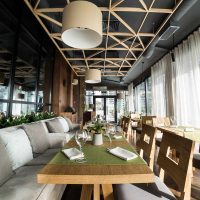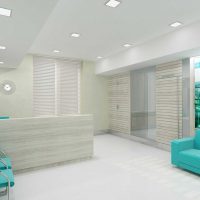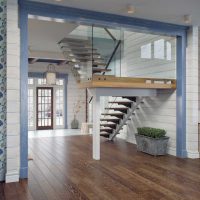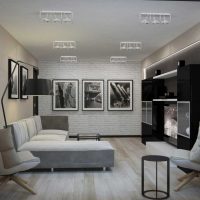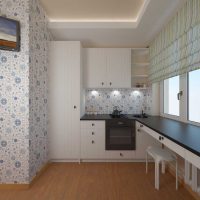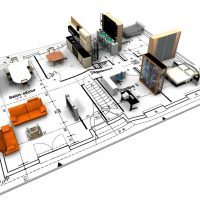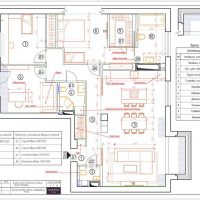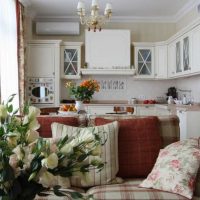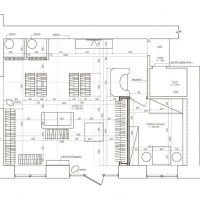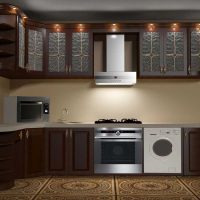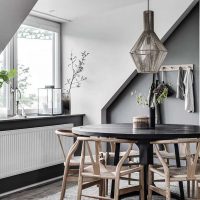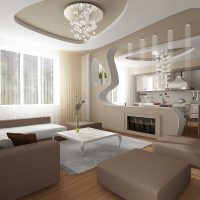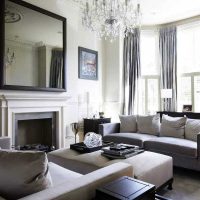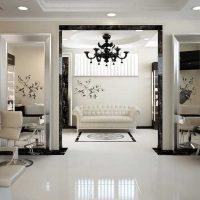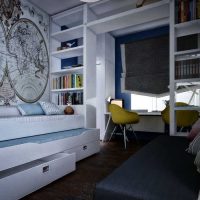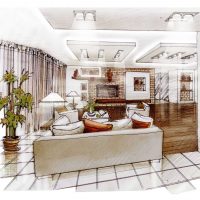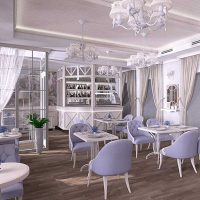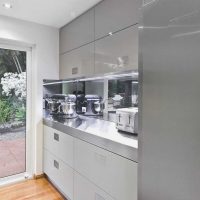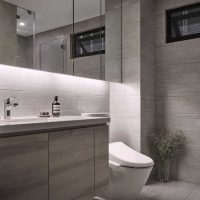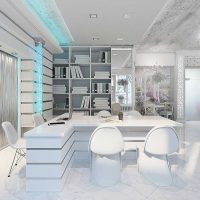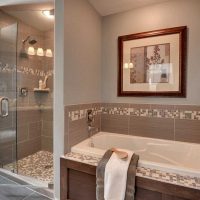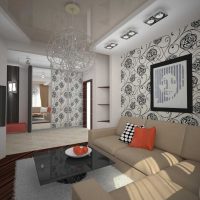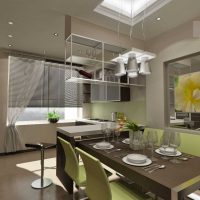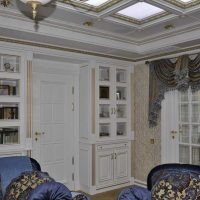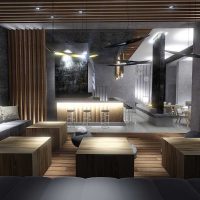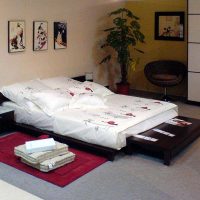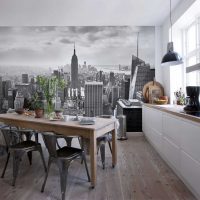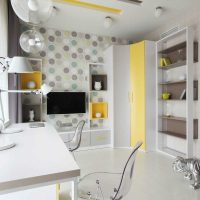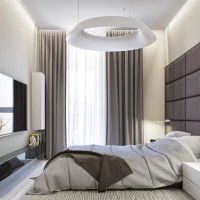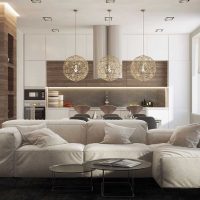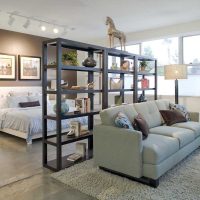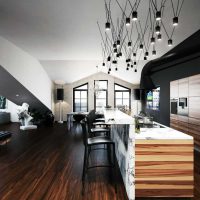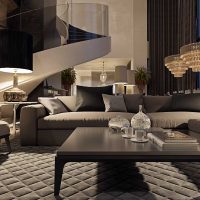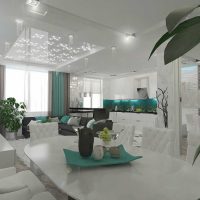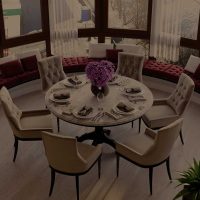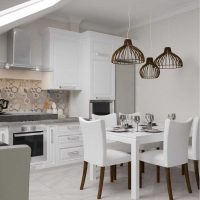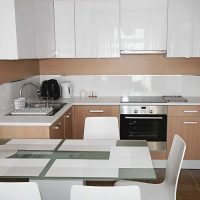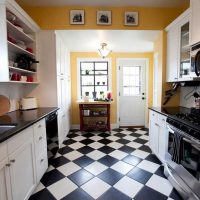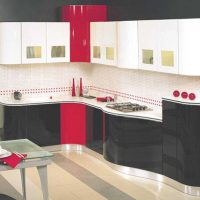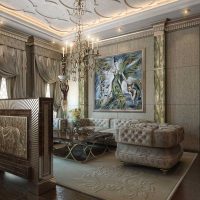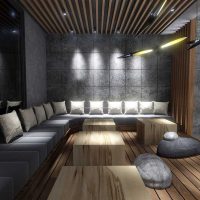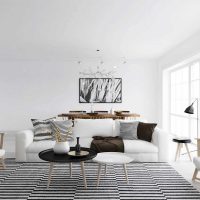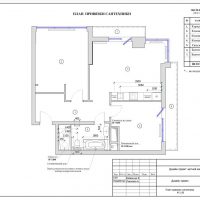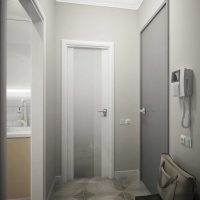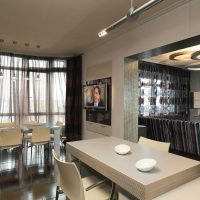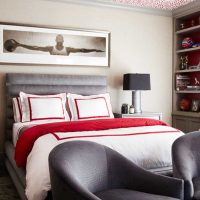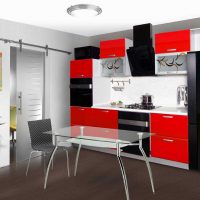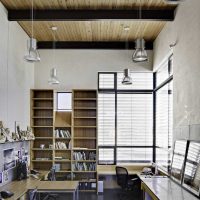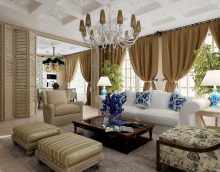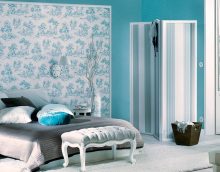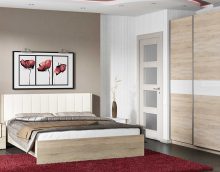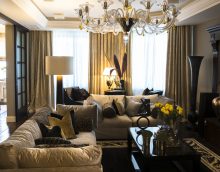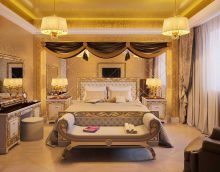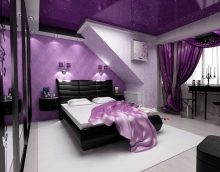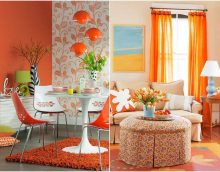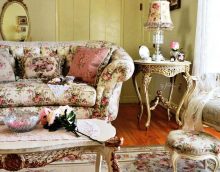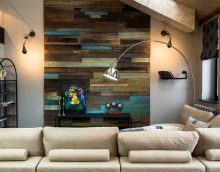Ergonomics in interior design: 10 rules for a comfortable space
The manner of arranging living space allows us to reveal the nature and characteristics of a person. The arrangement of objects, their sizes, combination, functionality and style are formed in accordance with the preferences of the owners. Ergonomics in interior design allows you to saturate the premises not only with aesthetic beauty, but also with maximum practicality.
The main rule that ergonomics use is comfort, which is felt from the everyday use of your home. To achieve this effect, you must follow specific rules. Let's determine what criteria a modern person’s housing should meet.
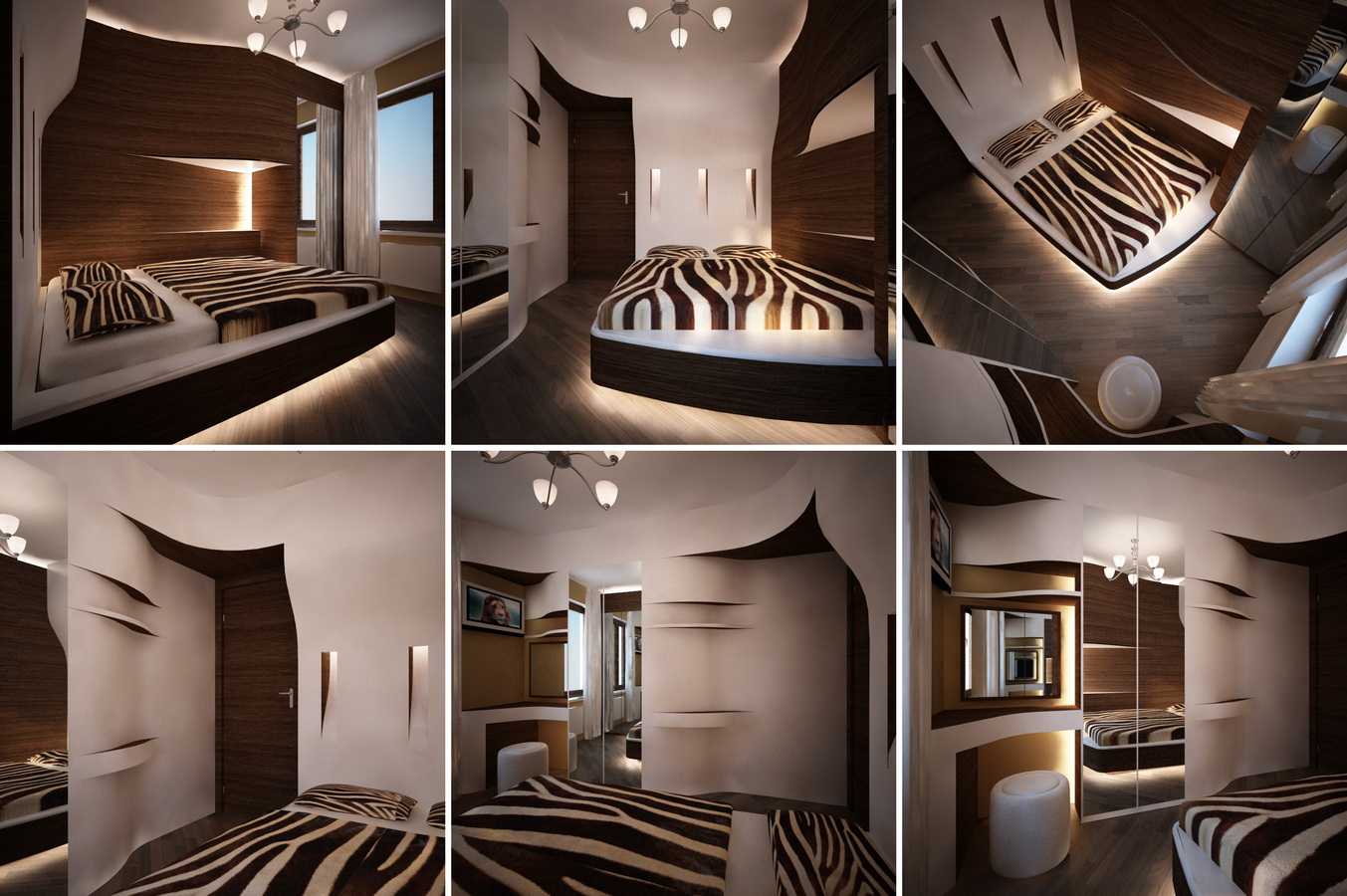
Ergonomics in the bedroom interior
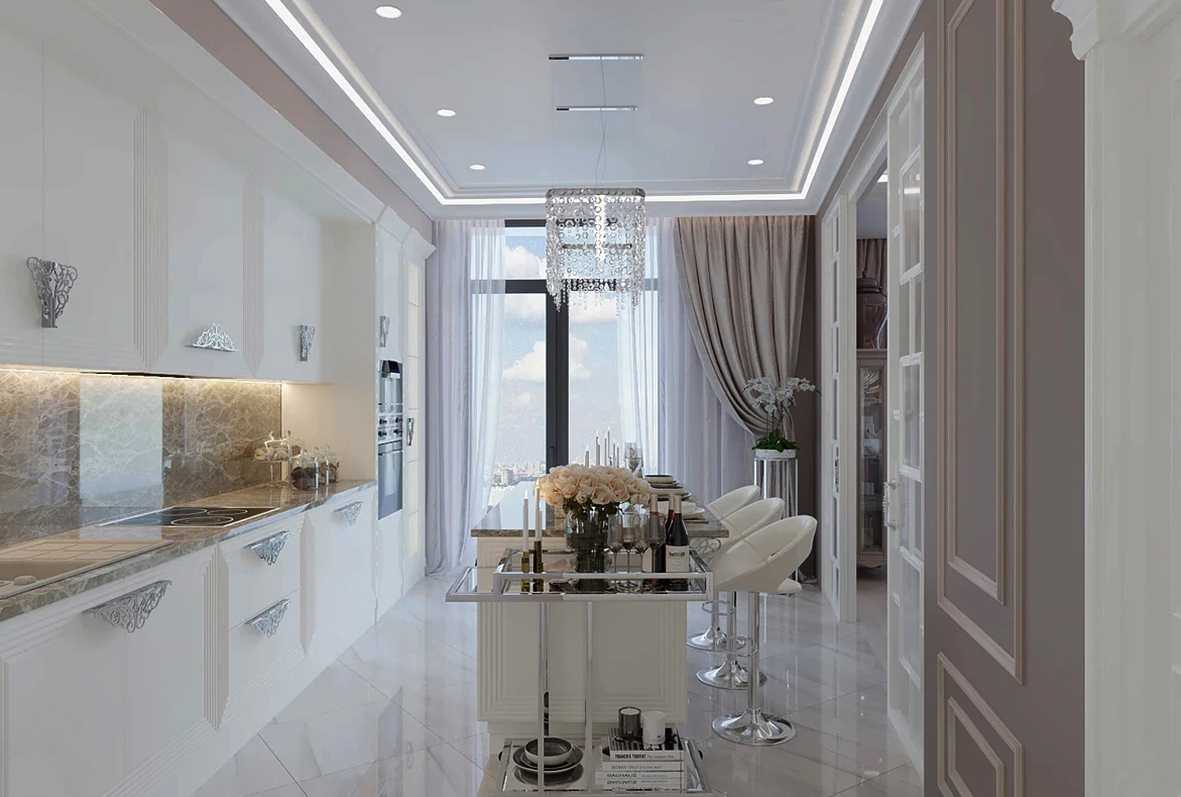
Ergonomic interior design
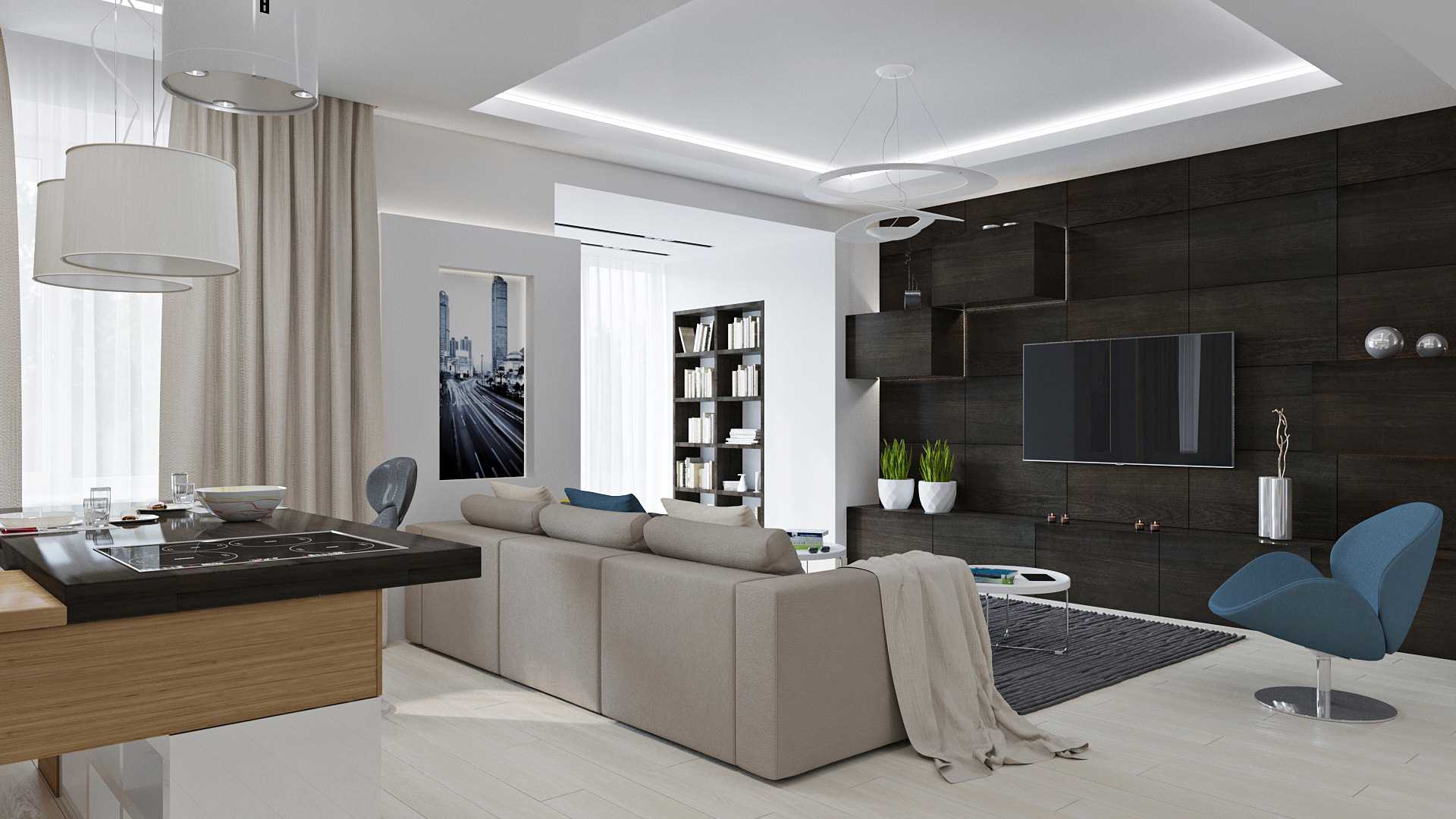
Ergonomic room design
Content
- 1 Ergonomics in interior design: 10 rules for a comfortable space
- 2 Minimum requirements for a residential building
- 3 Space organization
- 4 Ergonomics of the recreation area
- 5 Ergonomics of the workplace
- 6 Ergonomics of the sleep zone
- 7 Ergonomics of the dining area
- 8 Video: Ergonomics in Interior Design
- 9 50 photos of ideas for ergonomic interior design:
Ergonomics in interior design: 10 rules for a comfortable space
Apartments in the city are built to save space. In the conditions of short films it is very difficult to place all the details for a comfortable everyday life. Useful tips from specialists in ergonomics and furniture selection will help to make even a small room spacious and functional.
Determine the living area of the house and calculate the number of interior items that need to be placed in it.
When repairs are done from scratch, the owners often forget about the place under the washing machine, refrigerator or do not care about enough closed shelves to store things. Thus, extra items have to be "uttered" arbitrarily, which causes significant inconvenience.
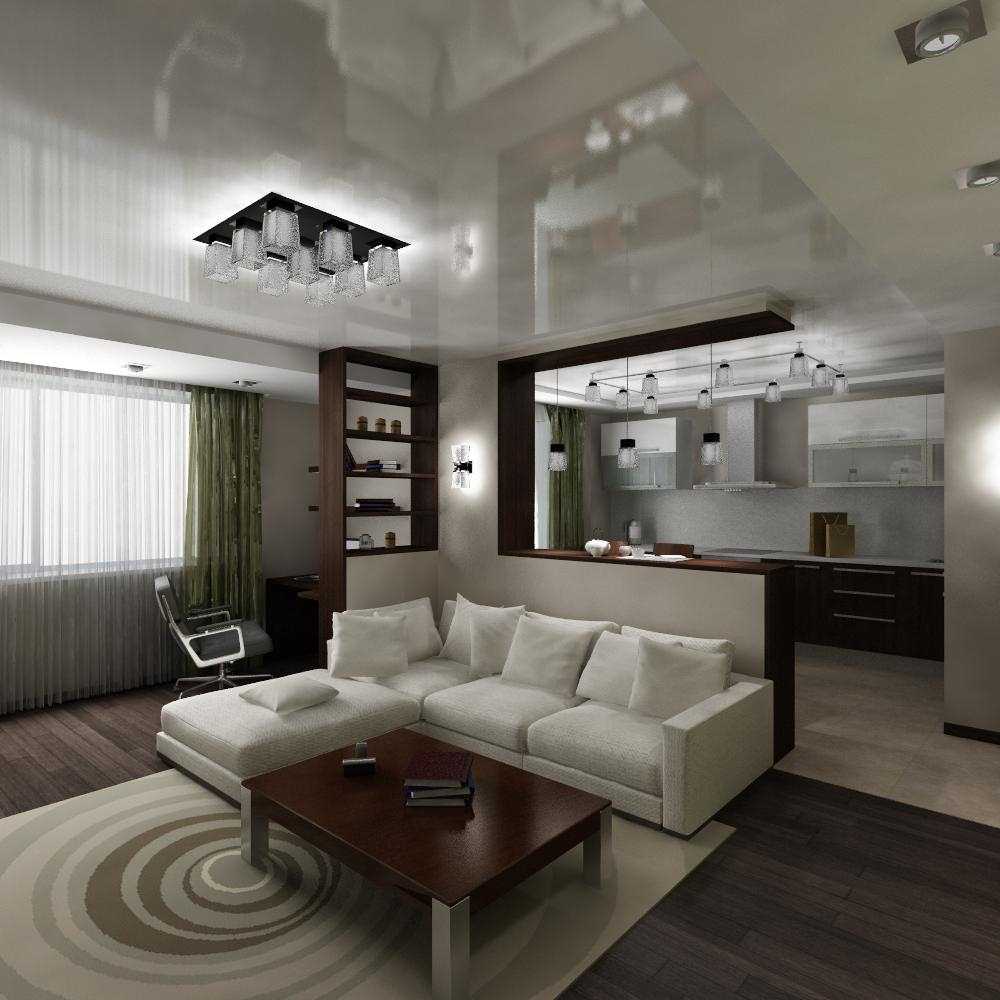
Ergonomics in the interior of the living room
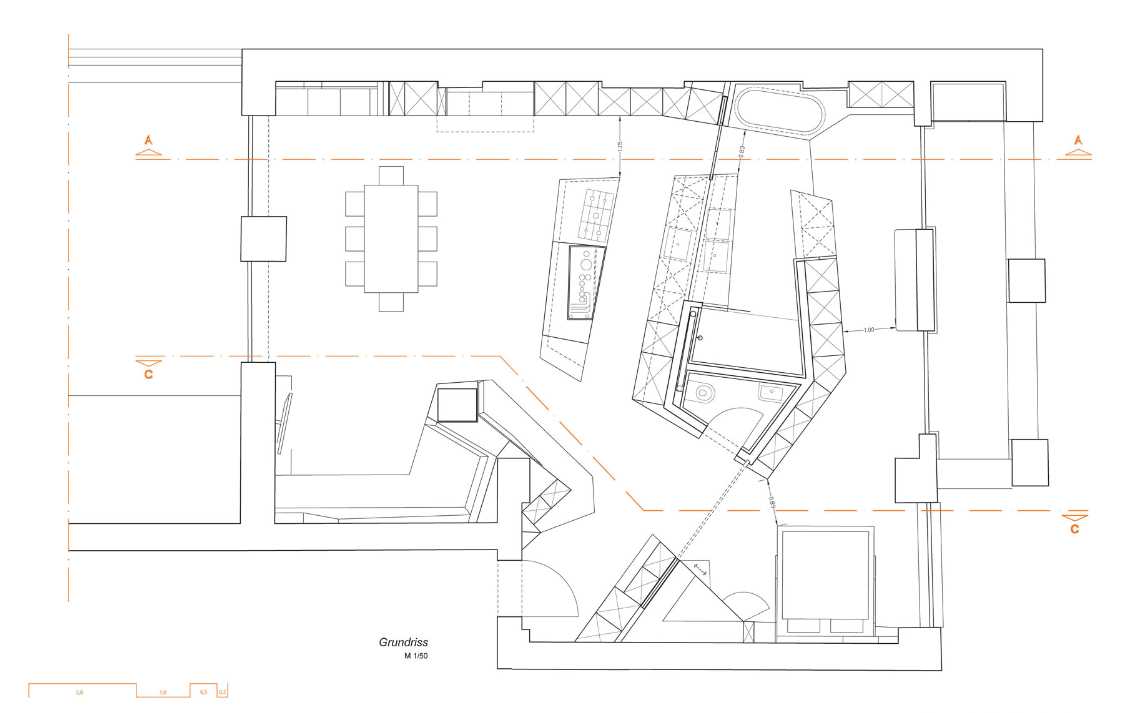
Layout ergonomic design of the apartment
Pay attention to the latest smart furniture.
On the market there are new models of folding tables, beds, bookshelves and cabinets that fit into the space so that you do not notice them at first glance. Such items can not only be bought, but also made with your own hands or on order.
Remove all unnecessary
It happens that even in a beautifully furnished room you feel uncomfortable. The reason for this is the large number of things on display. For example, the old tradition of collecting souvenirs and figurines that gather dust on shelves and do not decorate the interior.
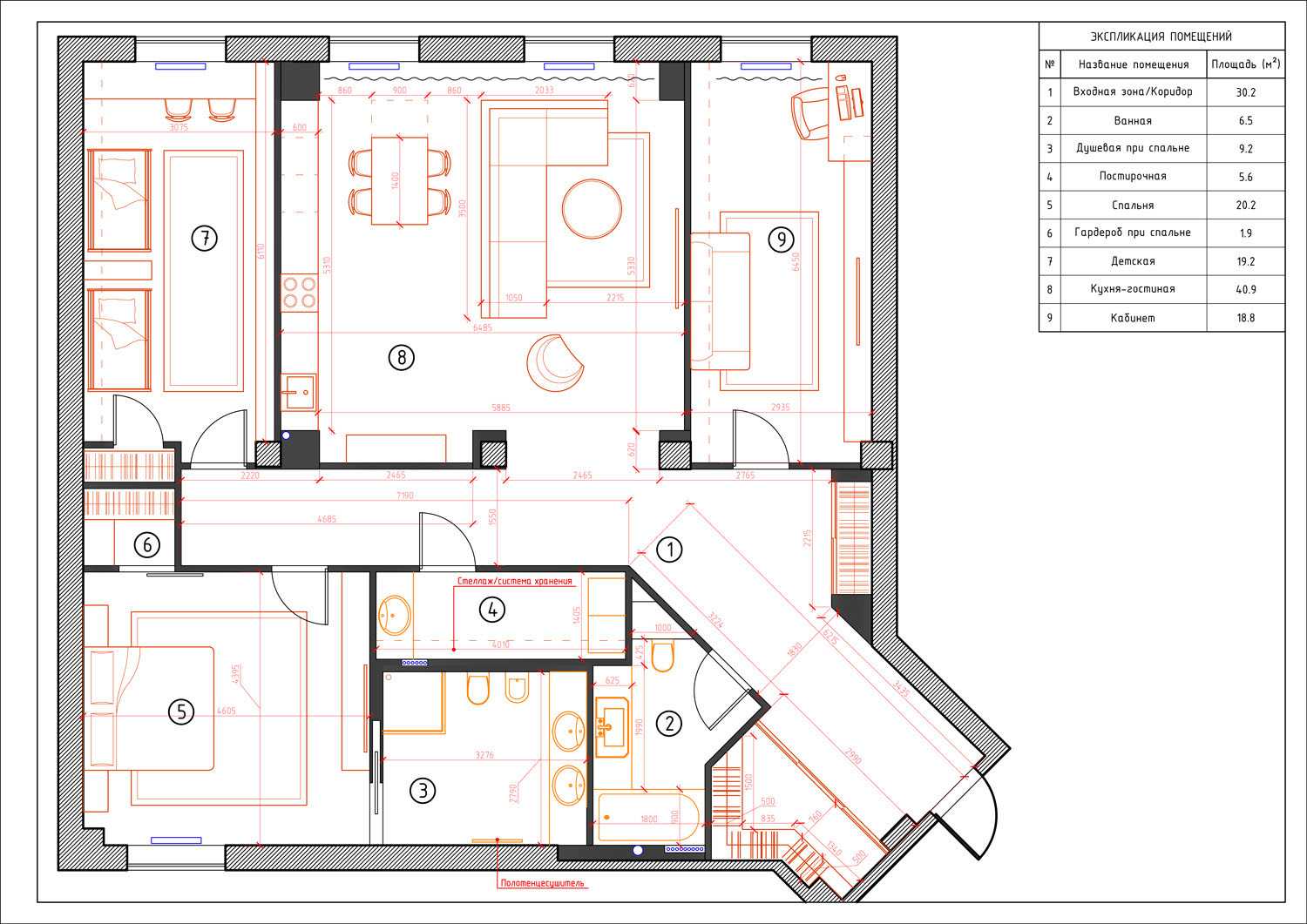
Ergonomic design of the apartment
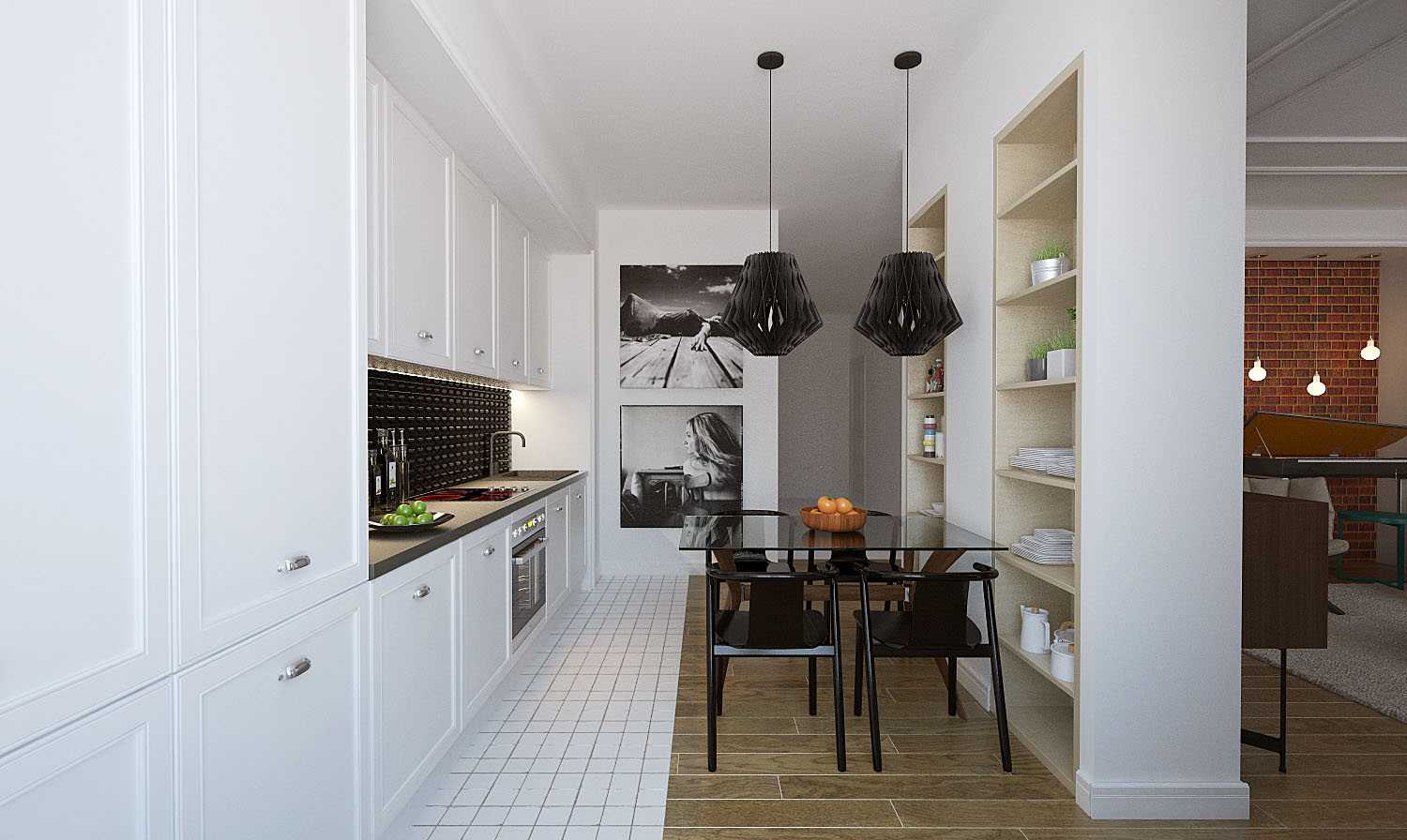
Ergonomic room design
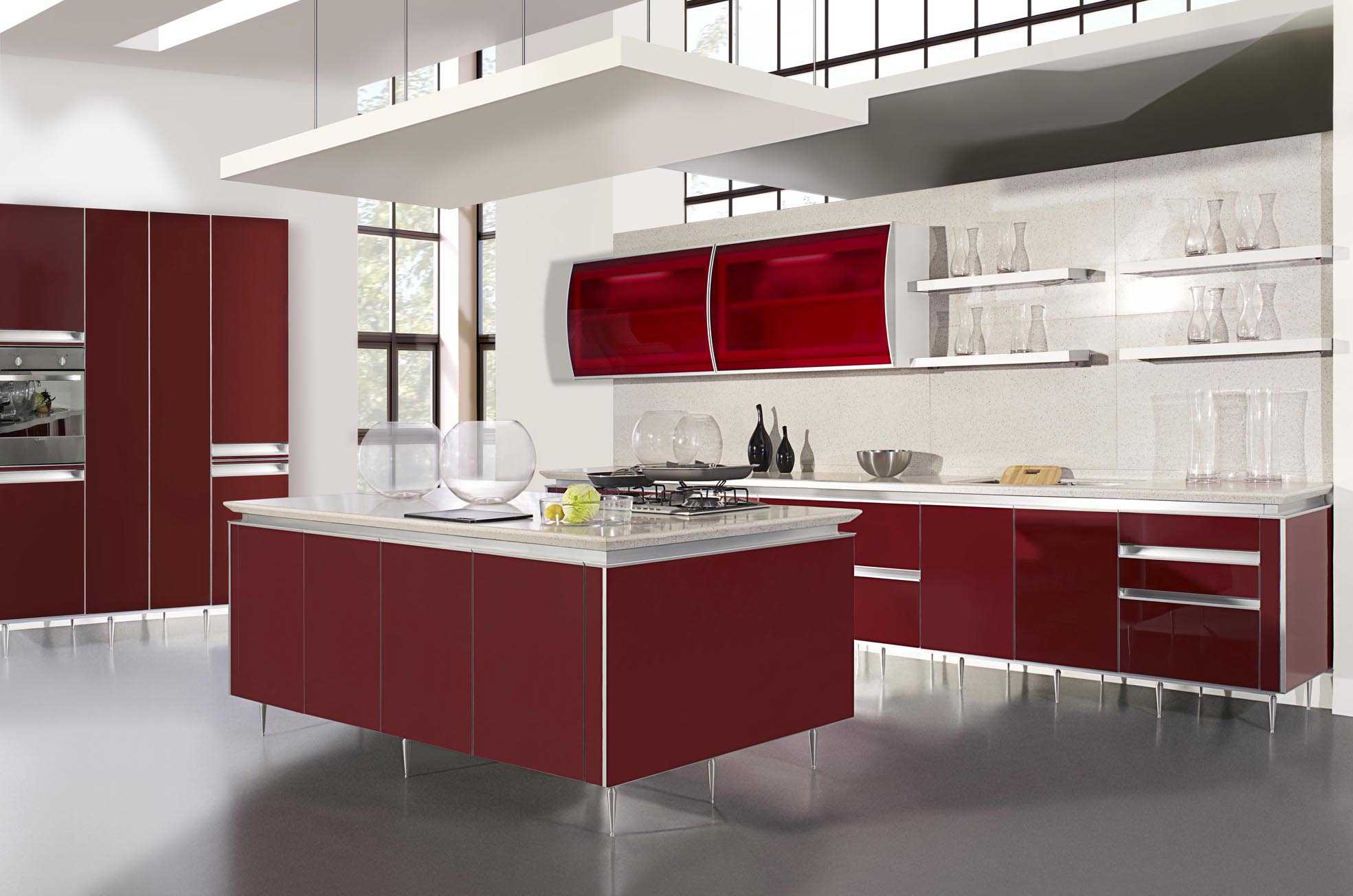
Ergonomic interior design
Keep order
Cleanliness is an indispensable tool for ergonomics. Because of rush, we often scatter things and banally litter space. In an uncleaned apartment, a person subconsciously feels discomfort and cannot concentrate.
Choose the right combination of furniture
The main place in the apartment is furniture. When different interior items are taken from incompatible sets, this creates a visual dissonance. It seems that you have assembled your interior "from what it was."
Pay attention to colors
Too colorful apartment in terms of a combination of shades and textures causes discomfort for a person. Under such conditions, our brain cannot assemble everything into a single composition.
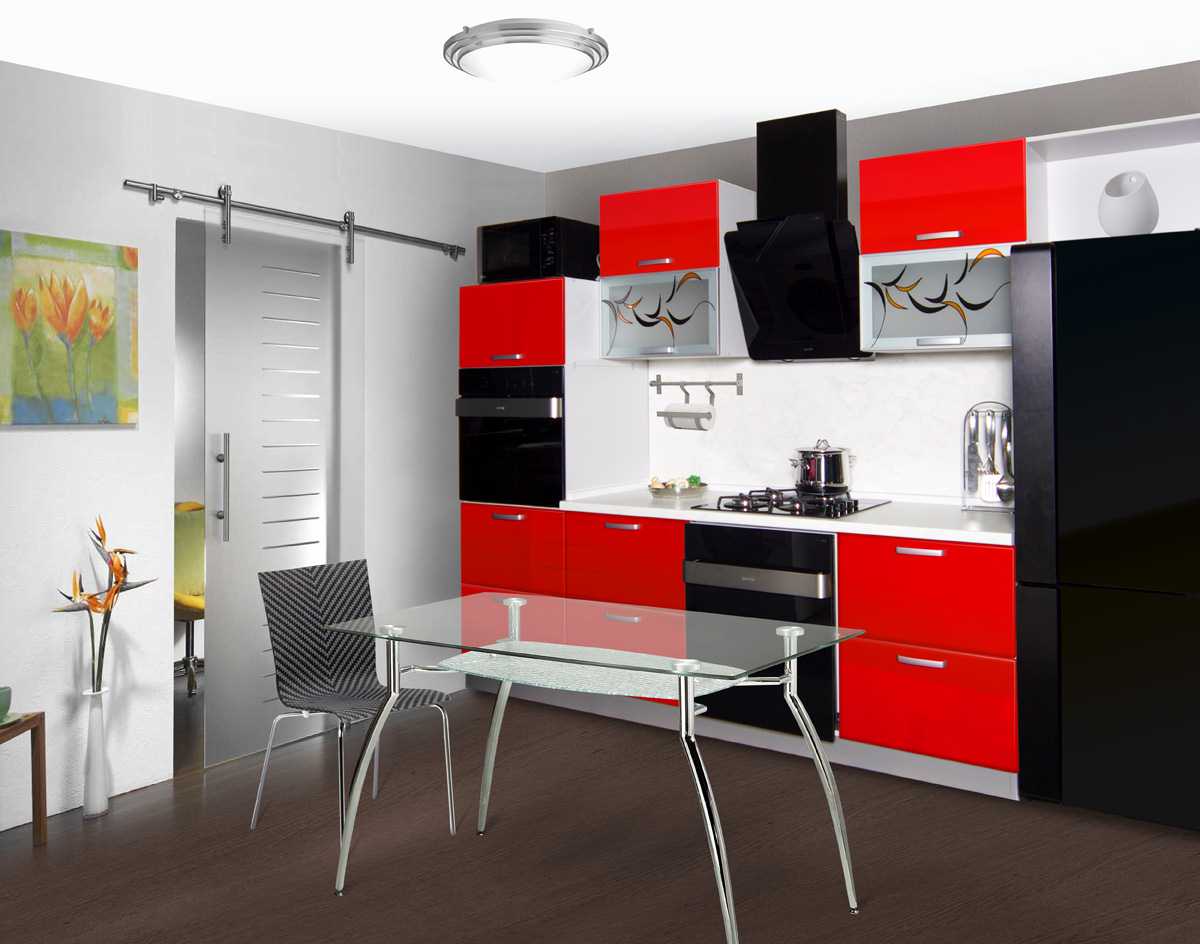
Ergonomics in the interior of the kitchen
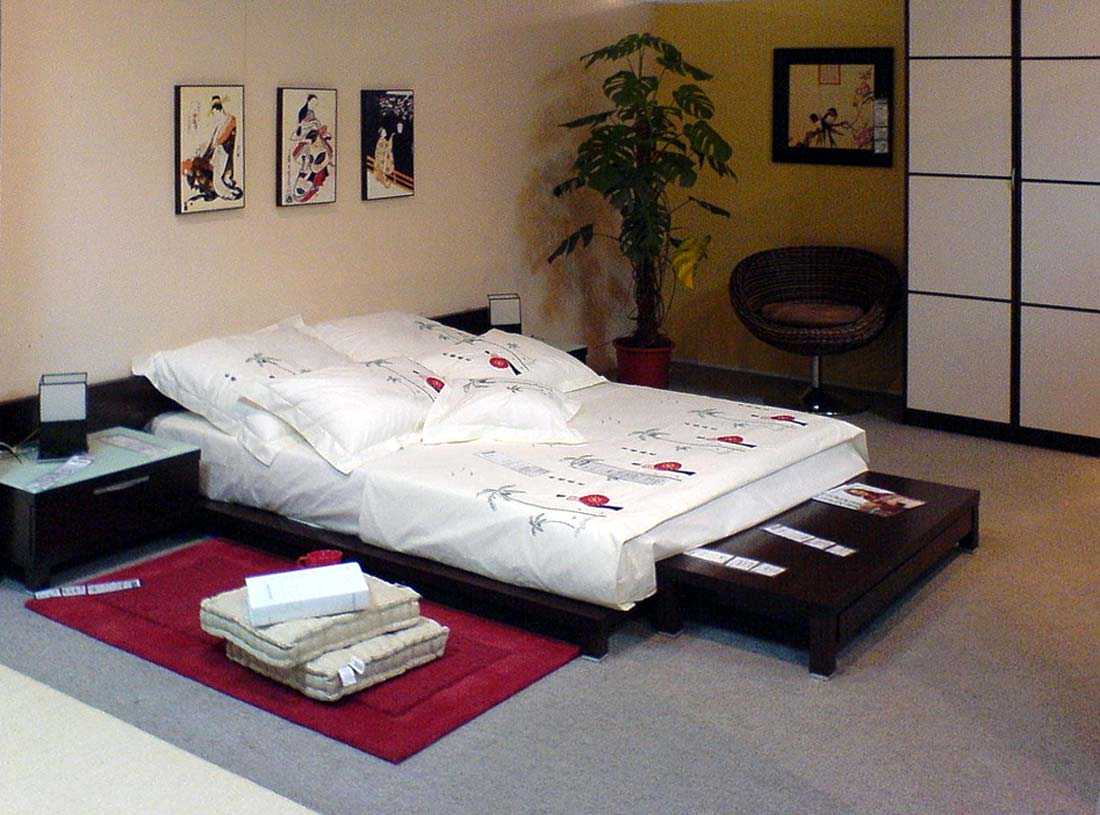
An example of ergonomics in interior design
Arrange furniture with space
Choose furniture options that maximize space and allow you to store more items. They should ideally fit into the interior and the size of the room.
For custom layouts - individual solutions
Buying everything in a store is not the best option if you have a non-standard apartment. In the absence of ideas, it is better to entrust the redevelopment to the designer.
Do not forget about accessories
Busting with a large number of small and non-functional accessories can be changed for the better if you equip the room with practical things.
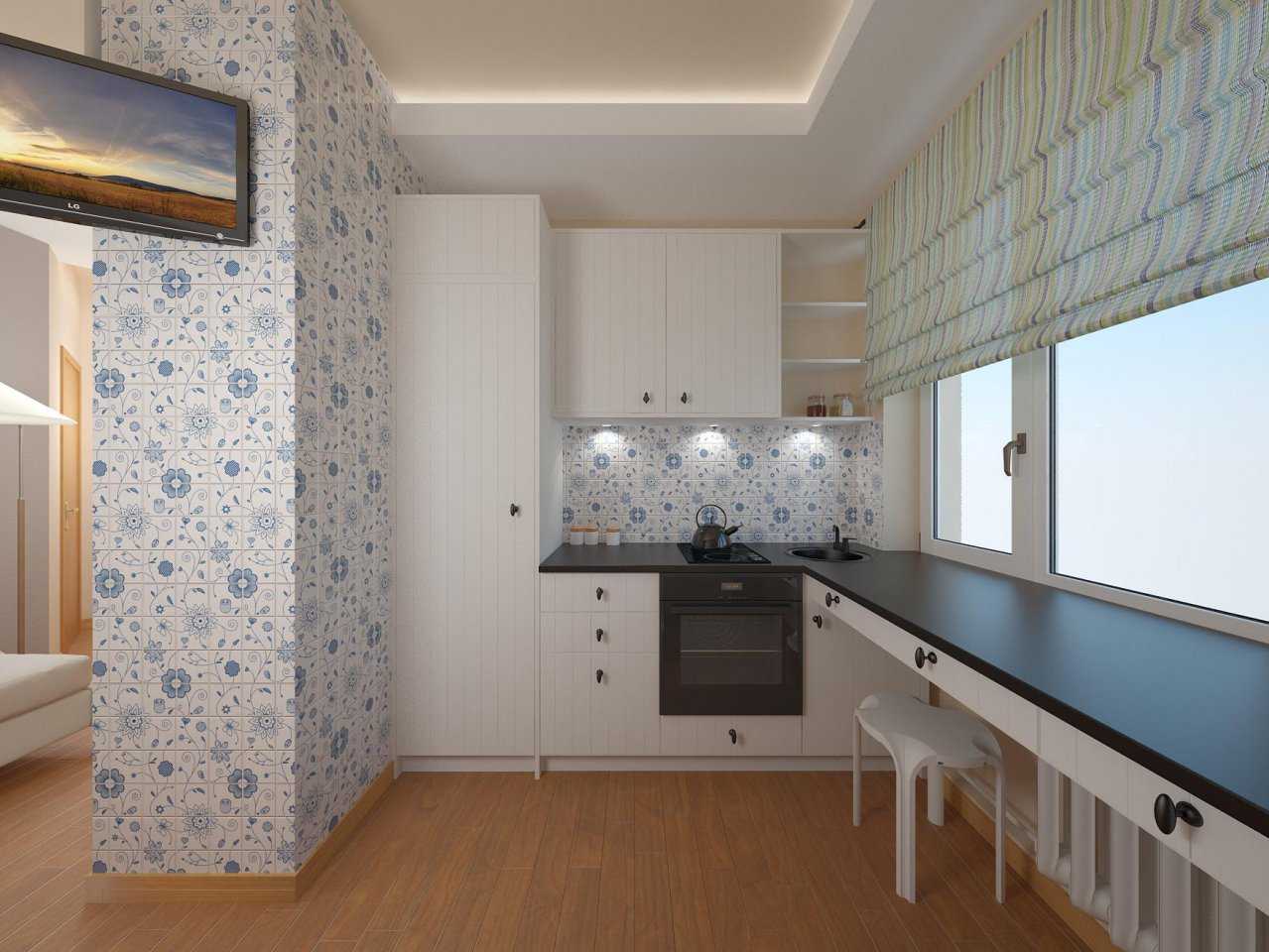
Ergonomic interior design
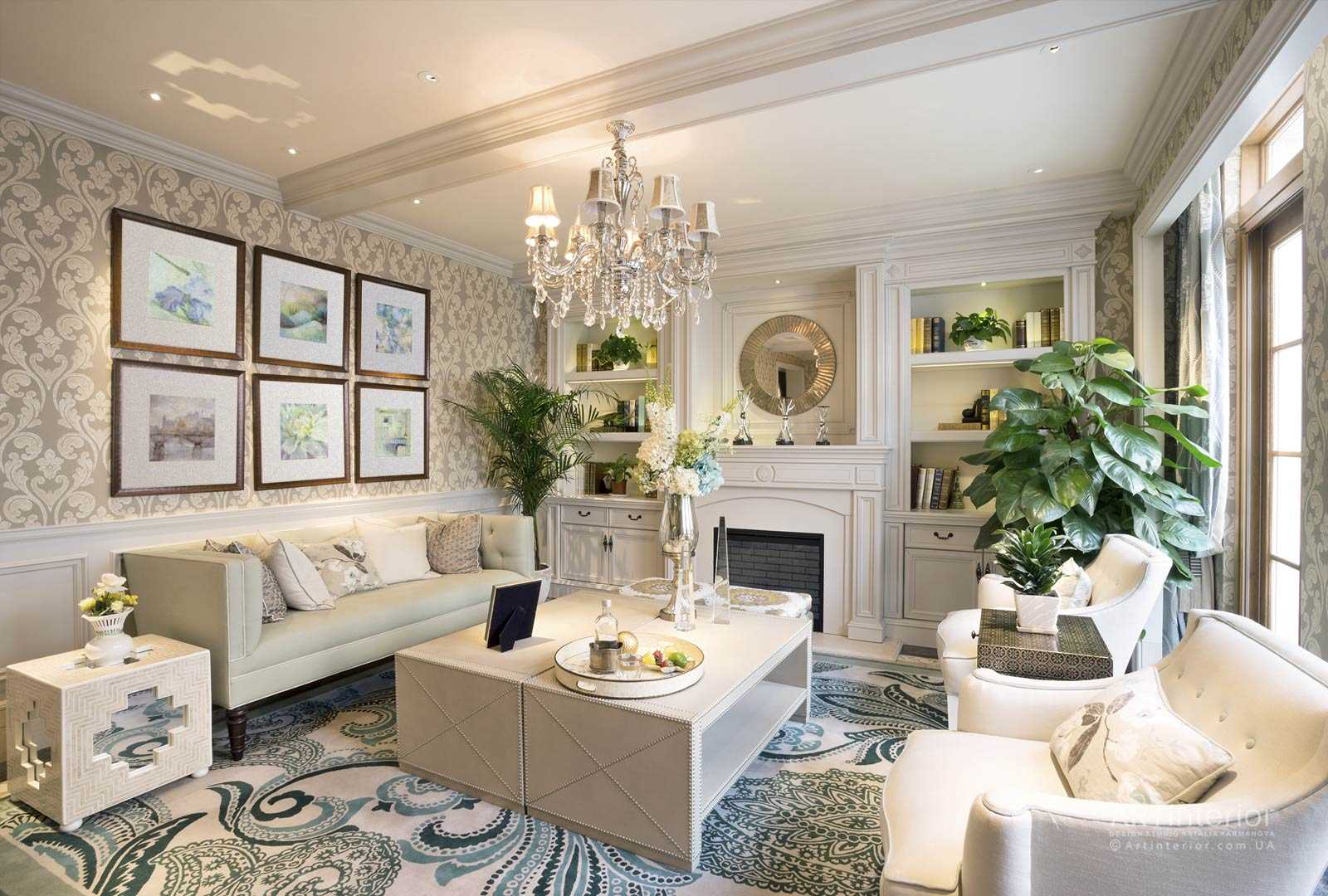
Ergonomics in the interior of the room
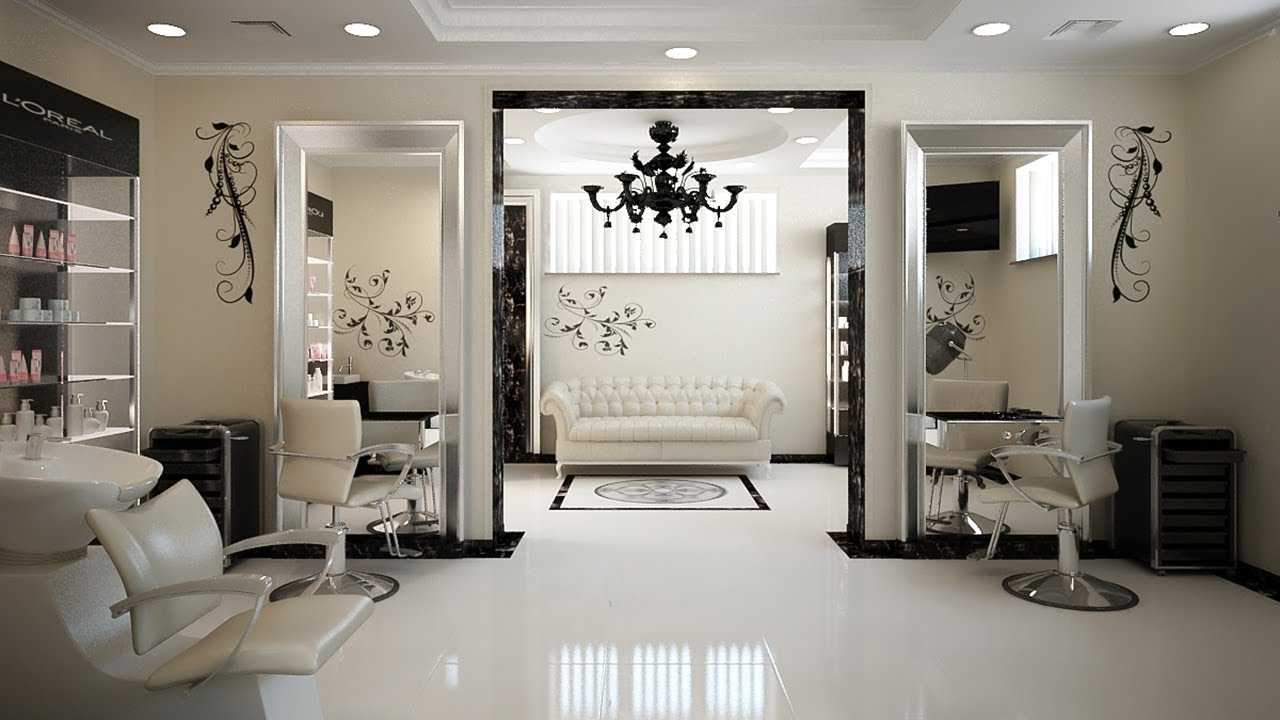
Ergonomic room design
Design the rooms according to their purpose.
Many ergonomic problems are solved if the owner took into account all the requirements for proper zoning of the space during the arrangement. Each zone has its own purpose. Functional design allows you to create an ergonomic look.
Minimum requirements for a residential building
There are a number of patterns, compliance with which will allow for improvements.
- If you start from the hallway, even in a narrow corridor there are gaps of 30-30 cm. This place is enough to install a compact oblong shoe - and the place is occupied, and does not interfere with movement.
- The width of the aisle in all rooms should be no less than 70-100 cm. Access to functional interior items should be open.
- Do not overload furniture. Try to hide flaws with the help of tricks: a table with hidden drawers, additional cabinets, shelves in the cabinet, etc.
- Each zone will be highlighted by the light and texture of the materials. Use a stylistic game, but stick to a single composition.
Standard rules create only a model. Ergonomics requires that the interior is as appropriate as possible for each tenant. It is important for a person to have everything necessary, the correct arrangement of objects, aesthetics and comfort. In a residential building there is a place for improvement of any zone - the kitchen, dining room, hallway, living room, bedroom, bathroom and workplace. Try to choose items that collect less dust and allow for quick cleaning.
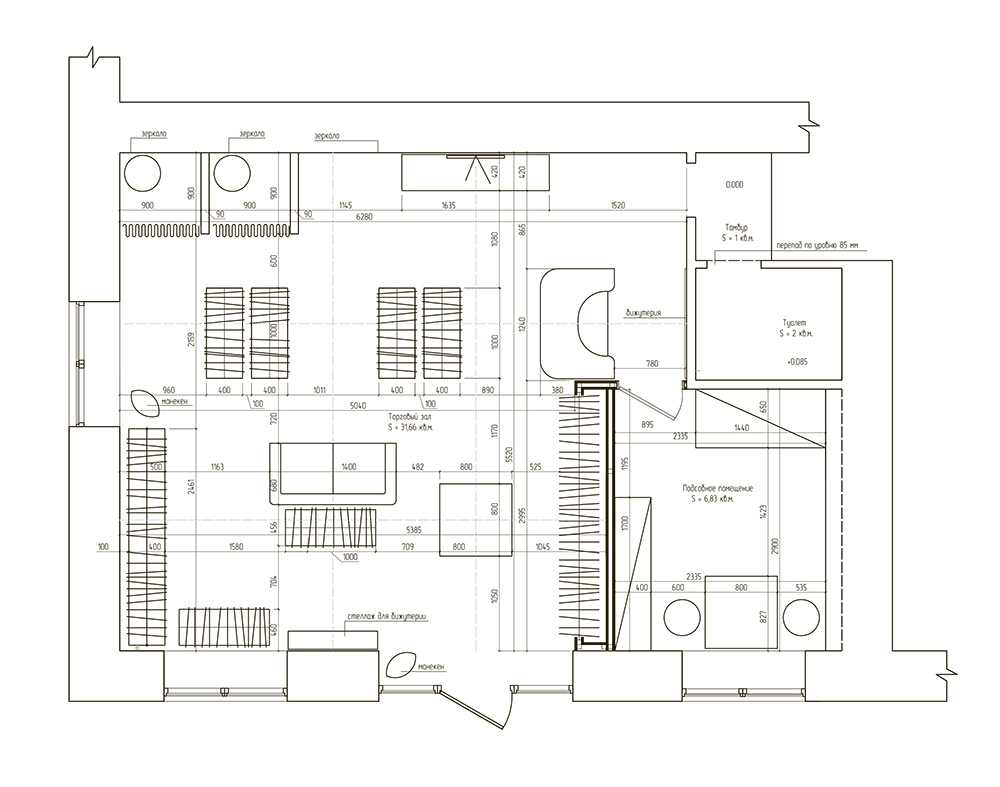
Ergonomic design of the apartment
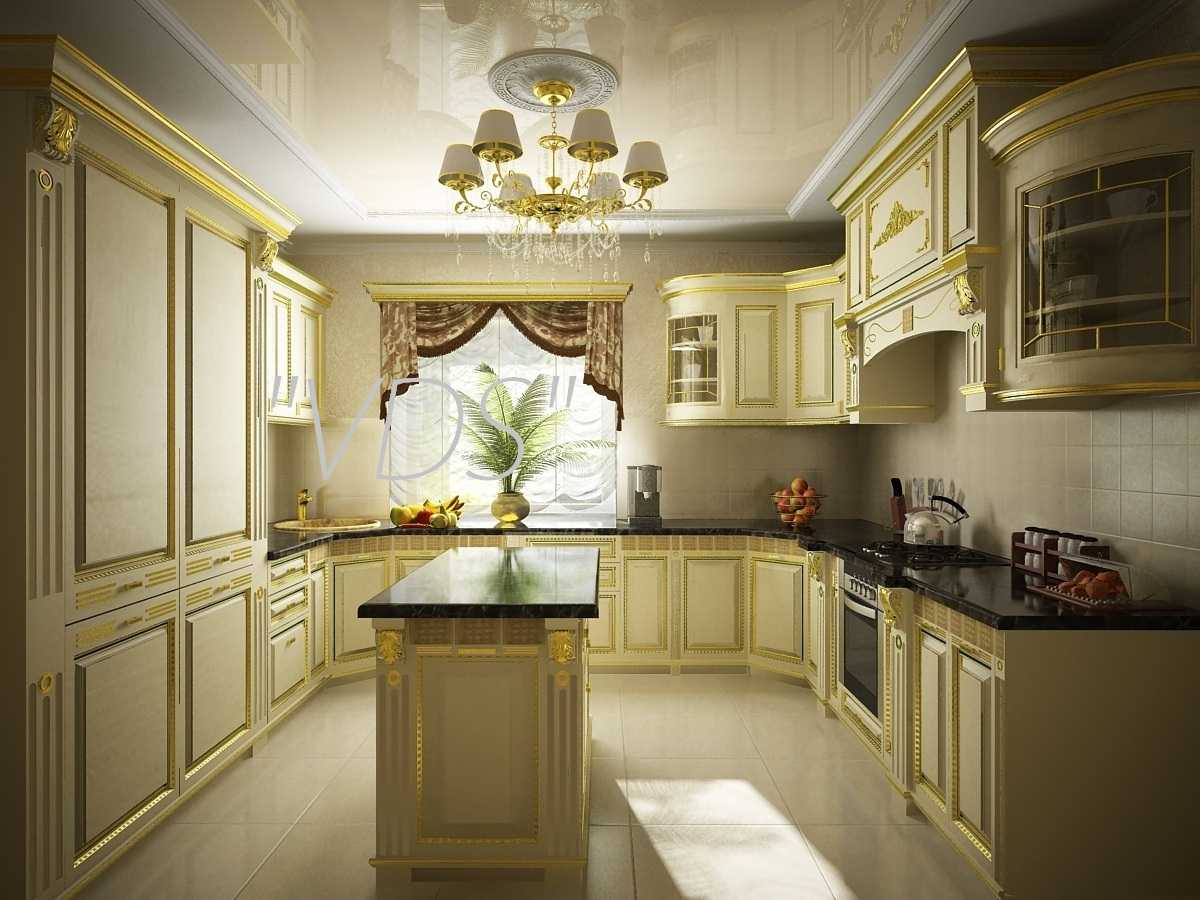
Ergonomics in the interior of the room
Space organization
The standard layout of housing in a new apartment takes into account some requirements. Ergonomics can be traced in the location of the premises. For example, at the entrance to the apartment leave more space for the hallway, then closer to the entrance is the hallway and the kitchen. A place for the reception of the kitchen is arranged in a cozy corner. The rest, sleep and work area, like the bathroom, is located at a distance from the entrance for maximum comfort. It is important that the area of the home corresponds to the number of people living here.
The width and height of the passage should correspond to the dimensions of the person. Contrast the colors in the decoration and correctly set the light to highlight individual zones in the room. Ease of use of furniture will ensure the absence of a large number of sharp corners and correctly opening doors. Organize the space according to your preferences and feelings. For example, if you are uncomfortable sitting with your back to the door, then do not put the workplace near the wall.
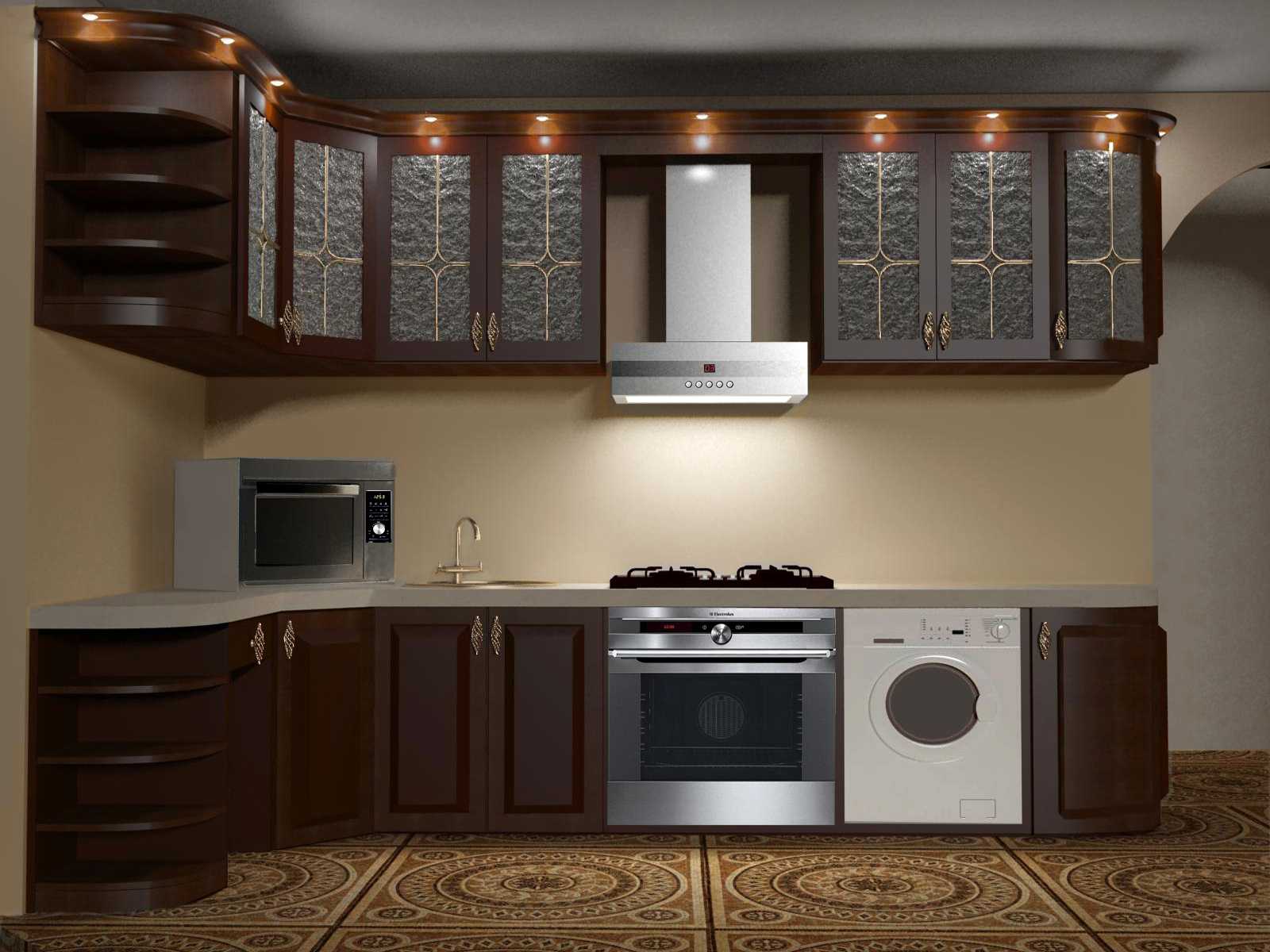
Ergonomic kitchen interior design
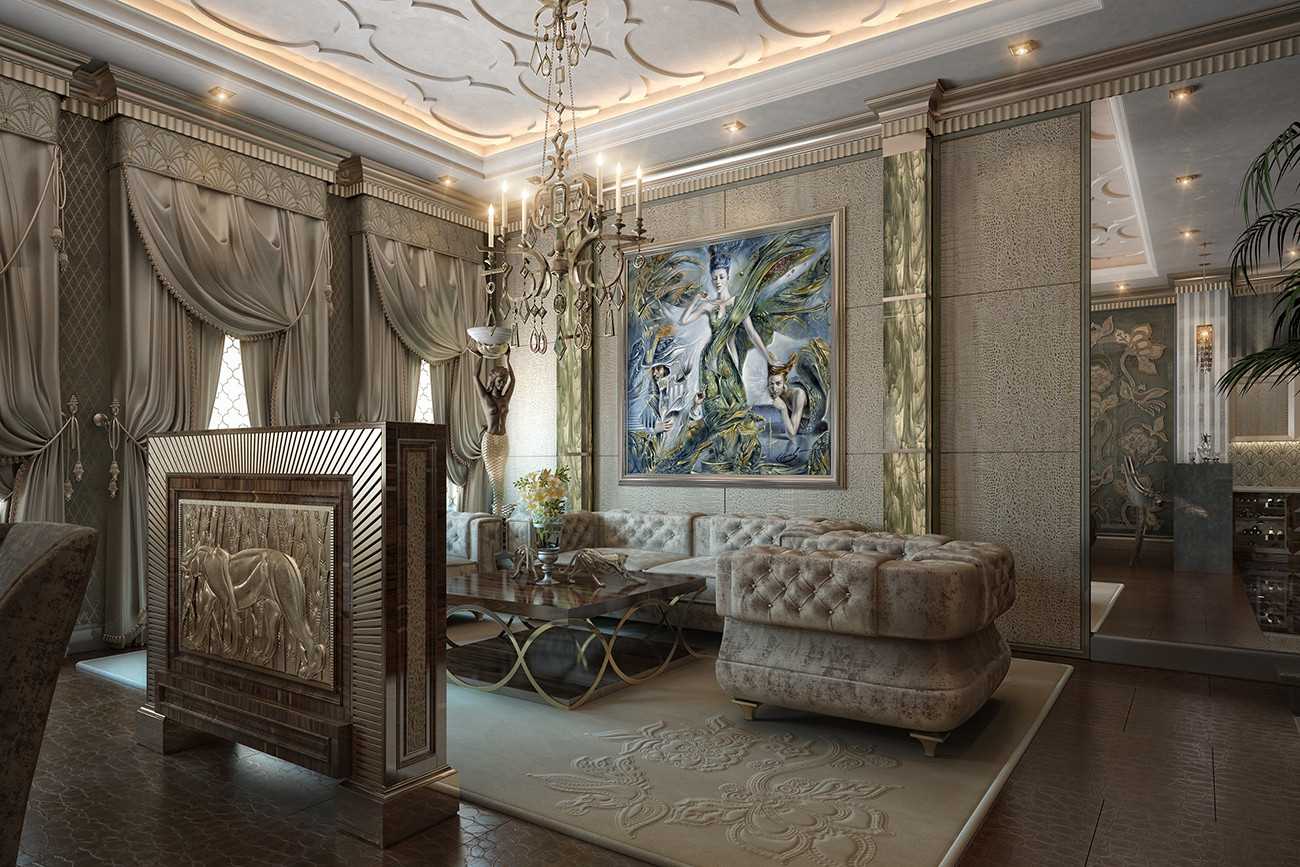
Ergonomic room design
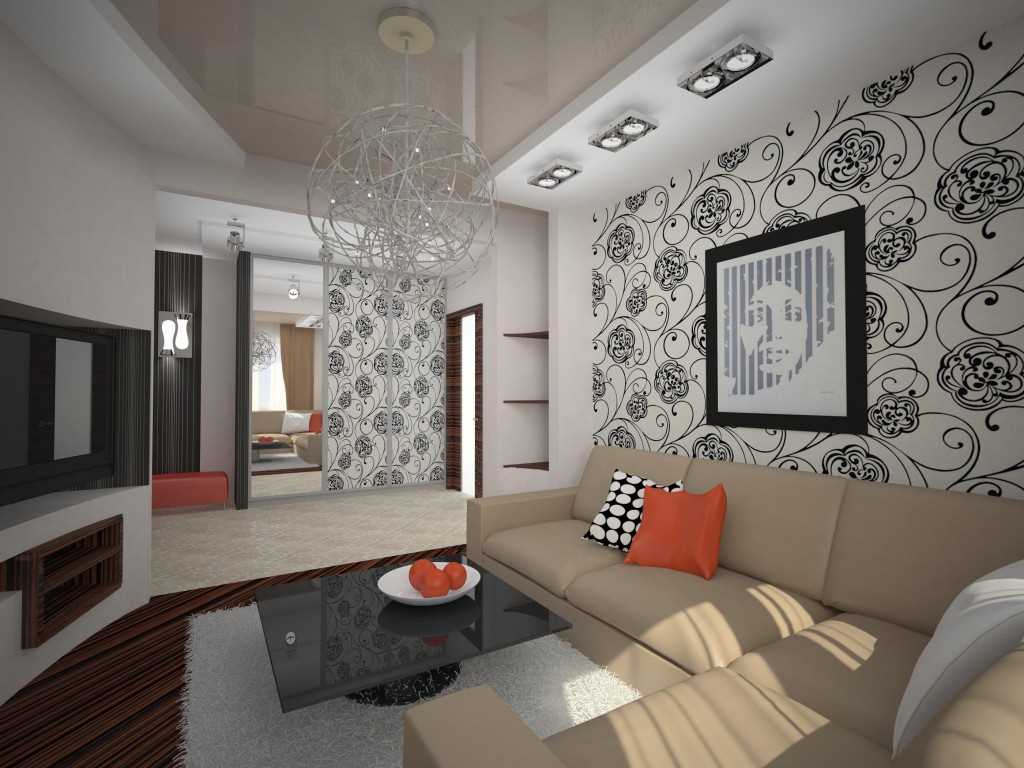
Ergonomics in the interior of the room
Ergonomics of the recreation area
The location of objects in a person’s relaxation area promotes relaxation. In this corner, everything is aimed at relaxation.For optimal effect, install underfloor heating, fleecy flooring, soft light with a lamp or sconce. Depending on preferences, bookcases, sofas, armchairs or sofas are installed here.
It is good when the view from the place of rest opens onto the street. Observation of the outside world is important for a person, he can think, distract and concentrate in a calm environment. The best solution for a recreation area is upholstered furniture and muted tones.
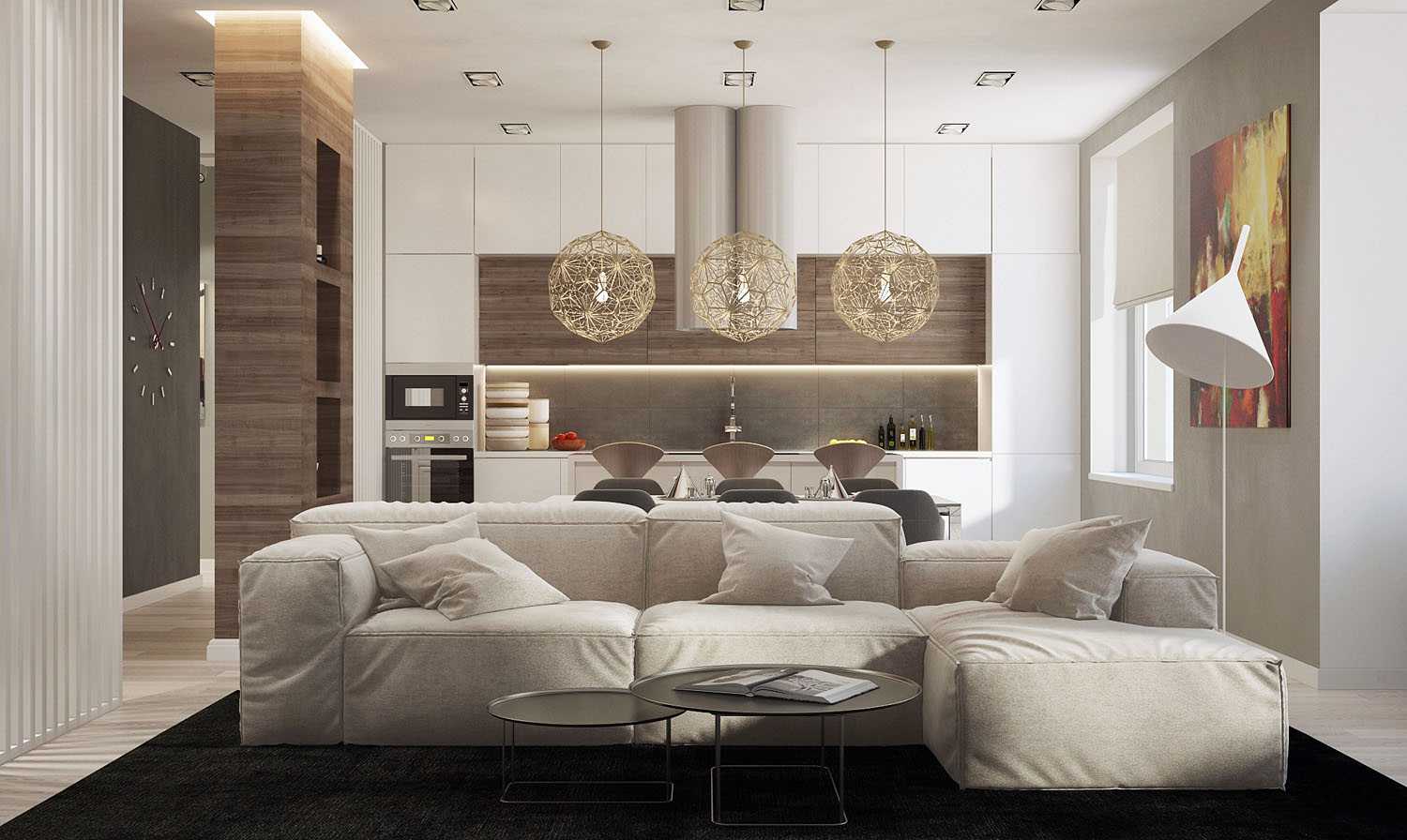
An example of ergonomics in interior design
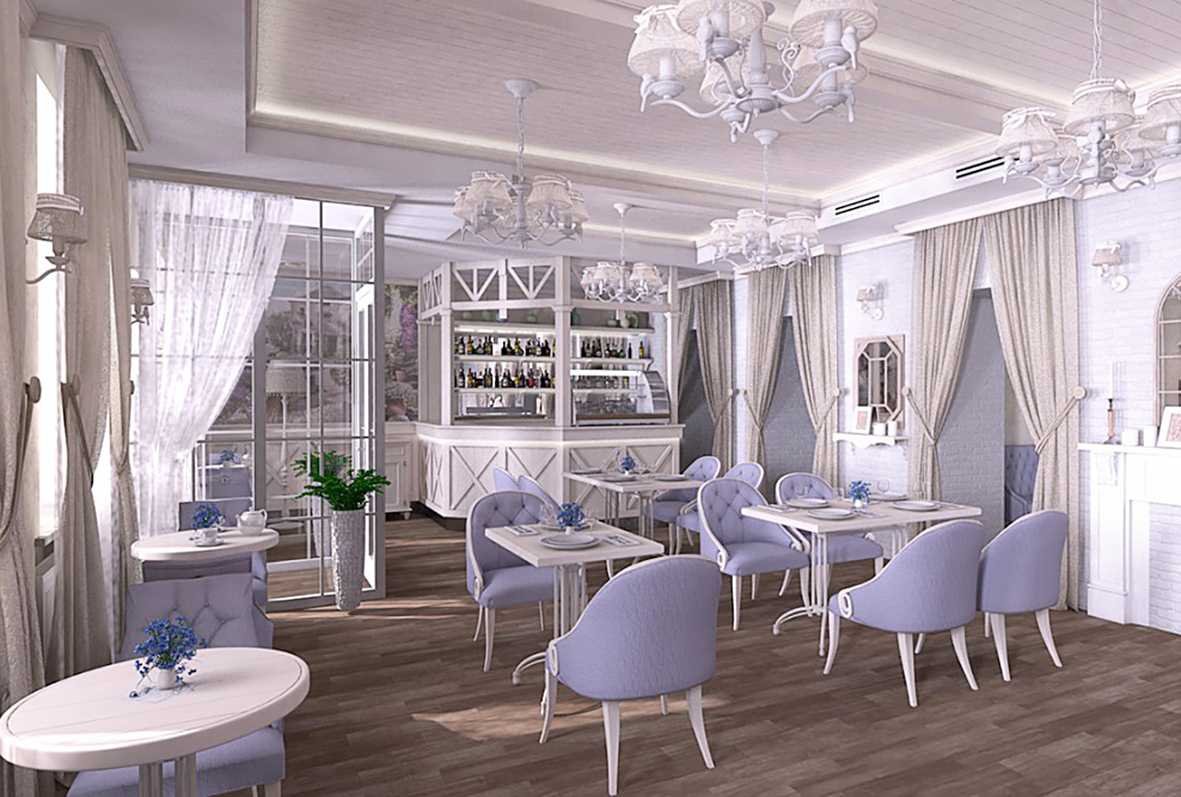
Ergonomic interior design
Ergonomics of the workplace
The antipode of a person’s resting place is the work area. Everything here is aimed at revitalization. Think about the layout of the table. The style of furniture should correspond to the style of all household items. Avoid the combination of modern and classic in the design of the workplace. Ensure comfort will allow the correct height of the table and chair.
The person’s prolonged sitting at the computer is compensated by the convenience of the back of the chair. Choose furniture, the dimensions of which correspond to the number of working devices (stationery, equipment, documents, etc.). Free the bottom for a comfortable foot position. The best option is to provide a separate room for arranging your personal account.
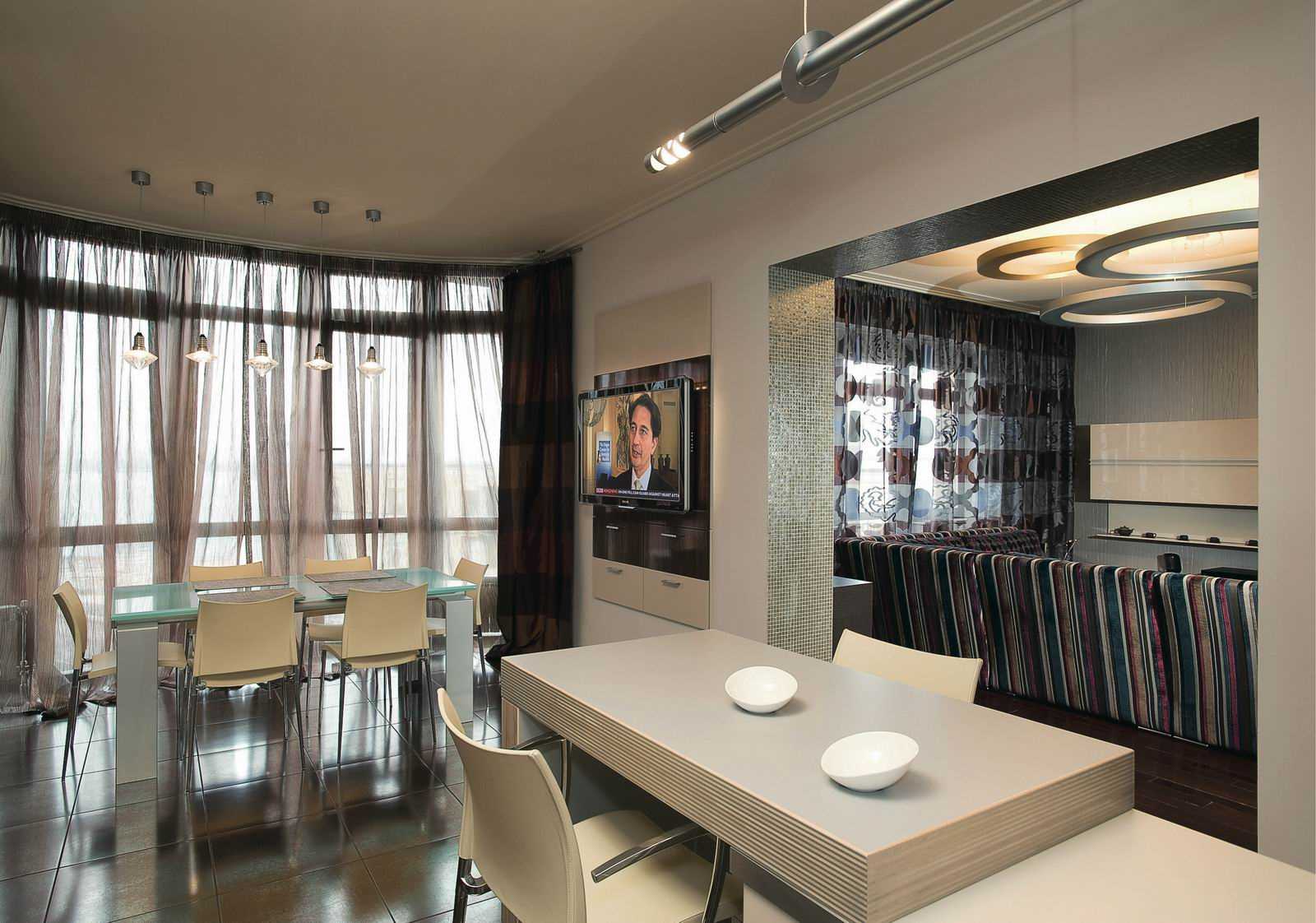
Ergonomic room design
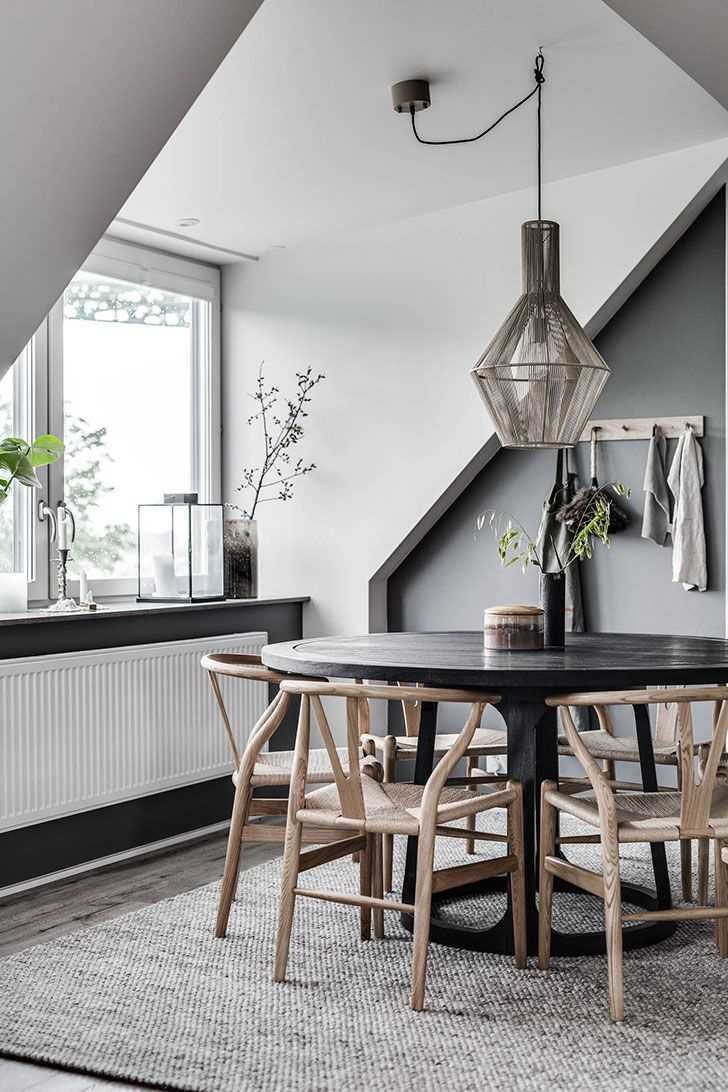
Ergonomics in the interior of the room
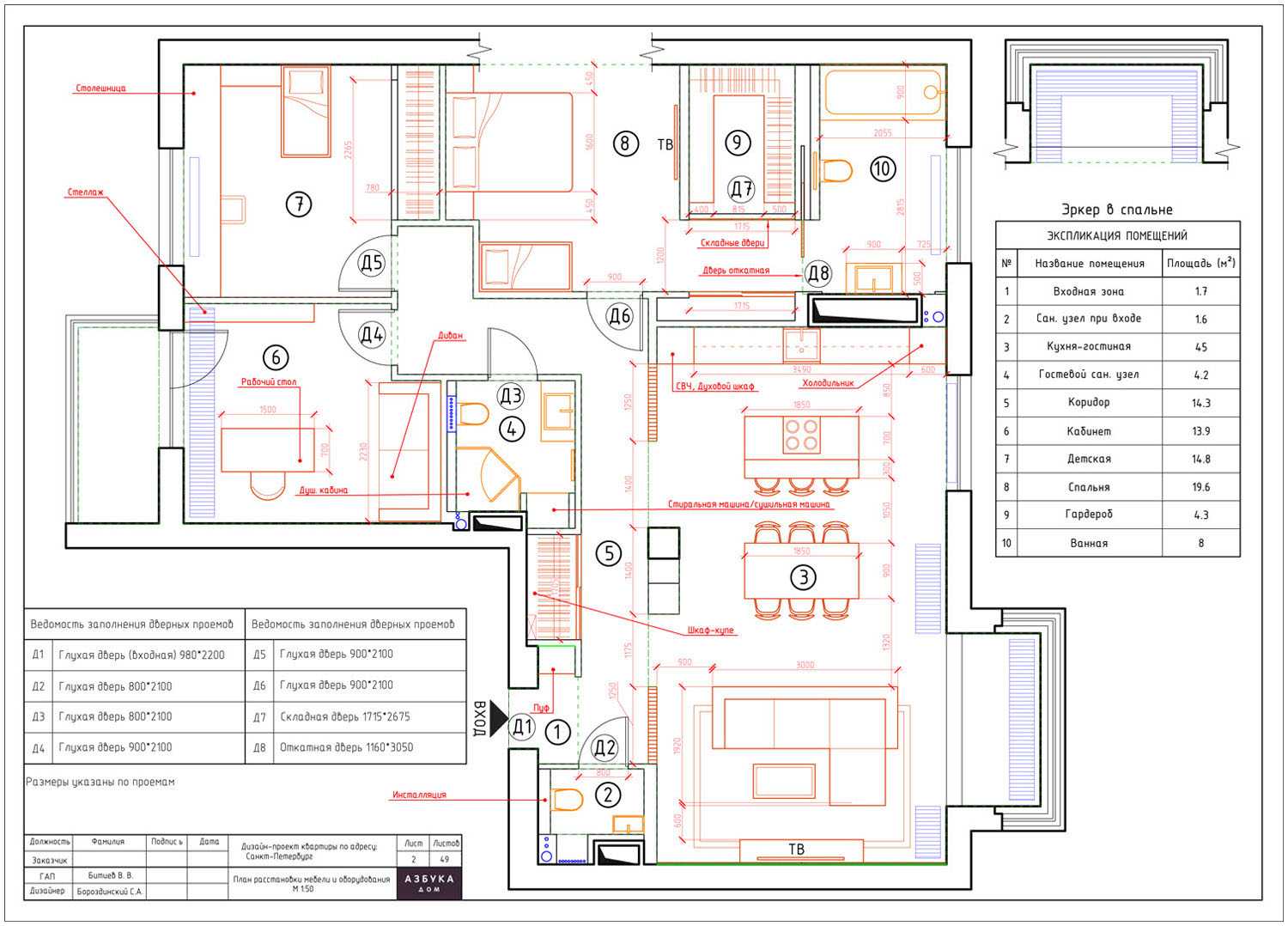
Ergonomics in the scheme of the apartment
Ergonomics of the sleep zone
In landscaping a place to sleep, you must use a minimum of detail. Make room for rest and relaxation. If there is no place for a bed in the sleeping area, then it is advisable to install a comfortable sofa or a sofa bed, which is especially important for small-sized apartments. It will take into account the size of the user and provide practicality. At the head of the room it is worthwhile to establish a spotlight. A sleeping place for two involves arranging wide aisles on both sides of the bed. Choose a neutral wall color that calms the nervous system for quick sleep.
Allocate a key place for a bed. It is better to place her head on the wall. From the sleeping bed you need to open a review of the door and window. The height and length of the bed should correspond to the size of the person and the required number of beds. Buy beds without sharp corners and with a closed bottom that fits snugly to the floor so that dust does not settle in hard-to-reach areas. To save space, install a bed with built-in functional bedding drawers and bed covers, but do not mount shelves with sharp corners above your head.
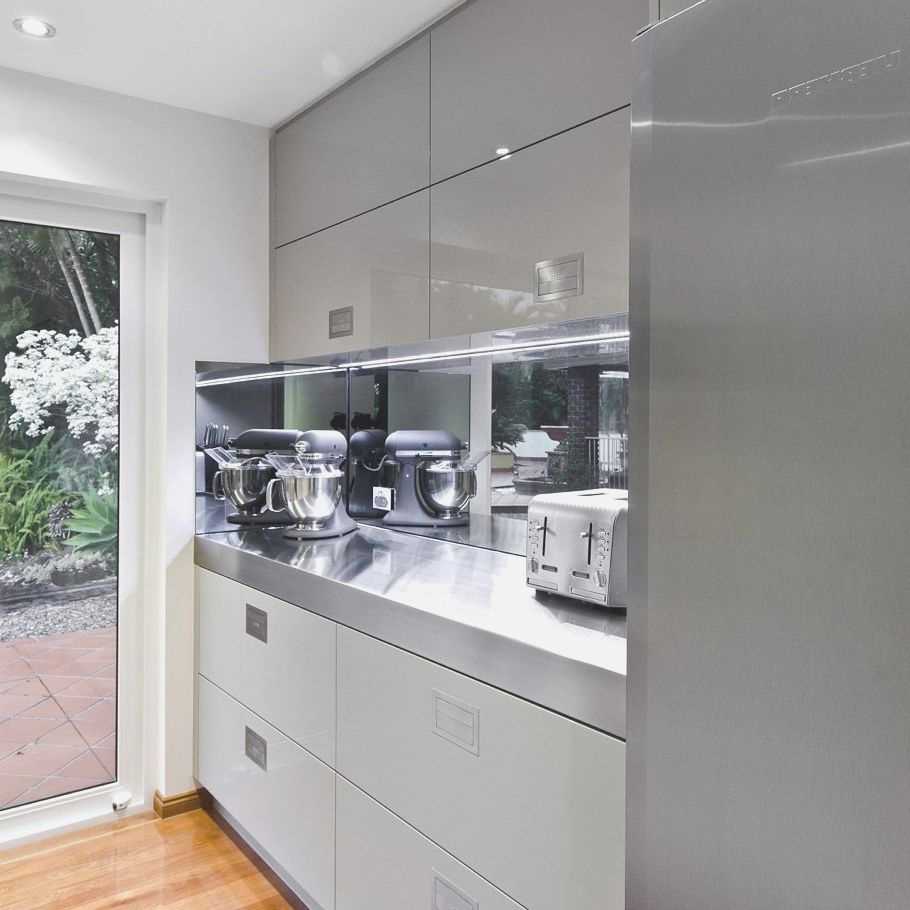
Ergonomic room design
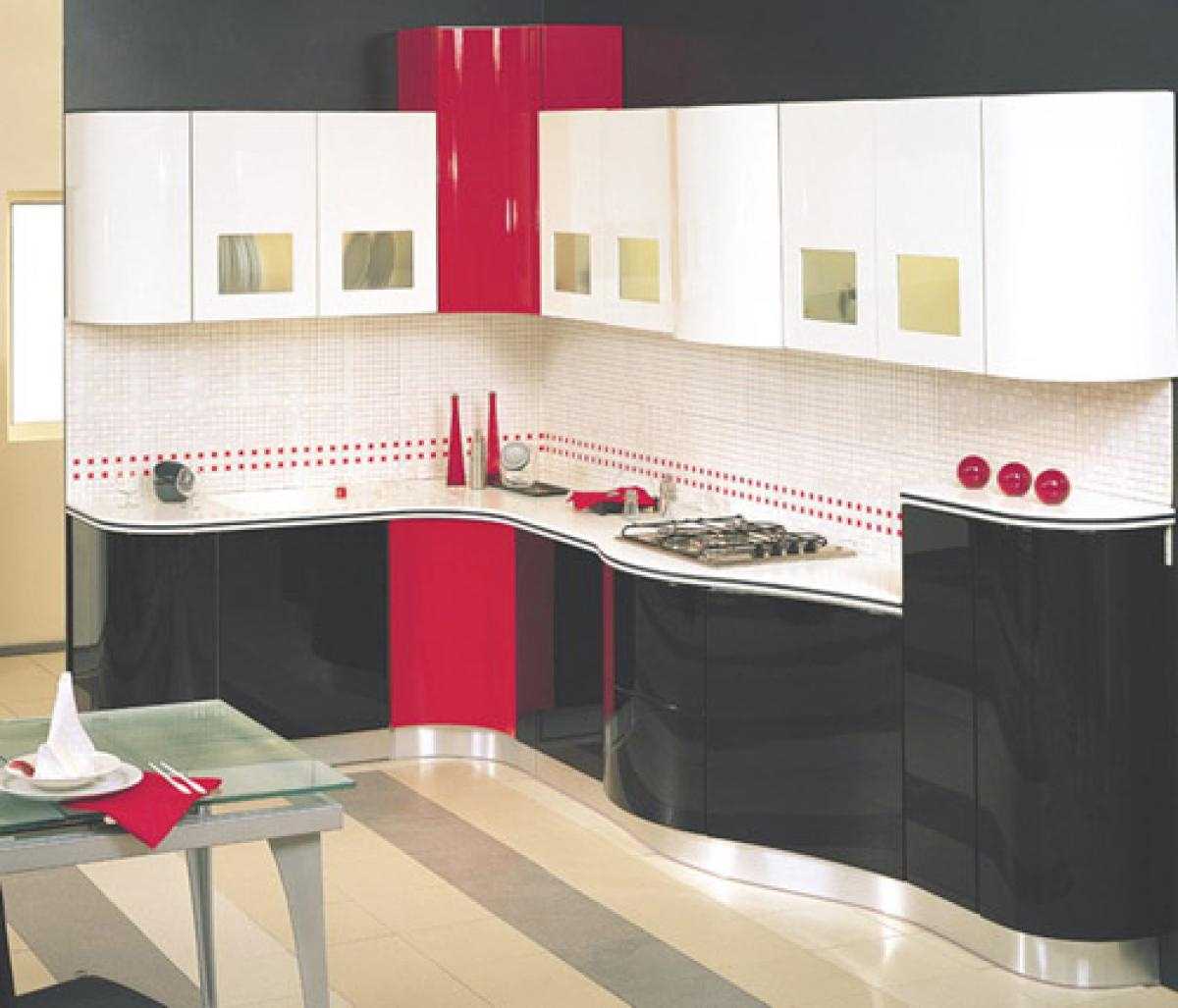
Ergonomics in the interior of the room
Ergonomics of the dining area
The interior design of the kitchen affects the speed of cooking and the comfort with which food is consumed. Ergonomics of this room is provided by the selection of thoughtful furniture. Choose a ready-made headset that combines convenience, simplicity and functionality. An important aspect in the daily use of the room is the area of the tabletop for the table. This is a workplace, the size of which allows you to place all the appliances and kitchen utensils. A novelty for a smart apartment is the built-in kitchen, in which household items are hidden.
The ergonomics of the dining room and kitchen require sufficient space for a full dining table (60 cm for each person) and comfortable movement. The premises are necessarily equipped with a refrigerator, stove, sink and drawers for storing utensils. The walls of the room are painted in tones that promote appetite. The ceiling height allows you to set the general light, and additional bulbs are arranged above the working surface. The floor is tiled and practical details are used for interior design.
Modern ergonomics will help revitalize and create comfort in any space. Show your imagination and be creative in the improvement of each room.Use ready-made solutions in the design of the room, and you will get an excellent result!
Video: Ergonomics in Interior Design
